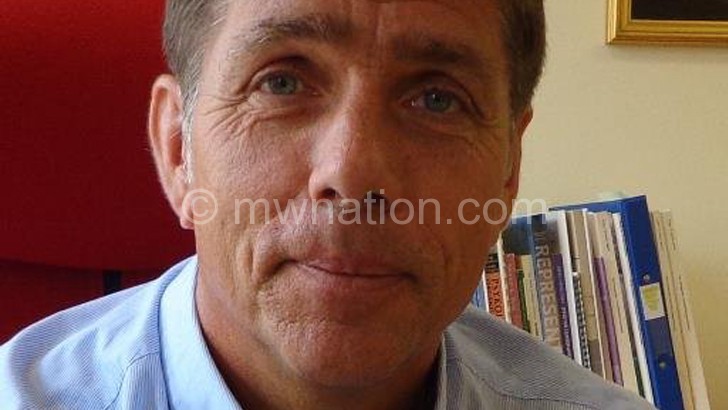‘Prison conditions remain poor’
Malawian prisons are notorious for their poor hygiene, overcrowding and spread of disease. Last week, the Norwegian Ambassador KIKKAN HAUGEN visited Maula Prison to appreciate the conditions under which inmates are serving their jail terms. Among others, he toured the female section and the modern sick bay in the male section both constructed by the Centre for Legal Assistance with financial support from the Royal Norwegian Embassy. Our reporter WATIPASO MZUNGU accompanied the Ambassador on this visit and had a chat with him. Excerpts:

So, why did you visit Maula Prison?
I want to learn more about prison conditions in the biggest prison in the country. And learn how the conditions are developing; are they getting more challenging or they are improving in that respect? Let me point out three main messages. First, the condition of prisons in Malawi is part of the international human rights obligations of the country. Secondly, we see some improvement being done in this respect. And number three; it is in area where all good forces really need to work together.
Why are you so interested in the improvement of prison conditions?
The human rights of prisoners are part of Malawi’s international human rights obligations, and I am sure you are aware both of the international system and African system of human rights. Malawi is obliged to report on progress on various aspects of human rights. Now, we look at what happened at the Universal Periodic Review in Geneva in May 2015 where Malawi got recognition for progress in many human rights areas.
But one issue that was pointed out by many and also recognised by the Government of Malawi is that Malawi has human rights challenges when it comes to conditions of prisons. Prisoners are supposed to enjoy the same human rights as every citizen with the exception of being imprisoned. So, the movement is taken away from them. But basically, they must enjoy the same human rights and freedoms that everybody else should enjoy. So the condition of prisoners and the condition in prisons is one of the challenges that we met.
Do you think there is any progress towards improving the conditions of prisons on the part of Malawi Government?
There has been some progress. There is interesting and promising initiatives by various stakeholders in Malawi. So, we know that prison authorities are now looking at the improvement of farms to improve the nutrition situation. One of the big challenges in prisons in Malawi is the nutrition situation. We know that there is an on-going revision of Prisons Act, revision of sentencing guidelines and both of these will hopefully contribute to there being fewer prisoners in Malawi and hopefully contribute to other forms of sentencing such as community service being used instead of prison service.
One of the problems in Malawi is that many criminals are sentenced to very long prison sentences for relatively small offences. We hear stories of young boys stealing a bicycle and being sentenced to eight years in prison. That is not, by any standard, a fair and reasonable way of going about it. It creates congestion in prisons; and it does not rehabilitate the young man who stole that bicycle.
Whose responsibility is it to ensure that conditions of our prisons are improved to conform to the requirements of the basic aspects of human and people’s rights?
Improving the conditions of prisons is the responsibility of the government [of Malawi] and Malawian stakeholders. But the issue where many of us are interested in supporting [you] is the joining of forces to improve the conditions of prisons.
It’s a complex issue with many different aspects to it. And it’s an area that can be improved that all good forces can join together—government, prison authorities, Ministries of Home Affairs [and Internal Security], Health, Education, the multilateral partners, the bilateral partners, the NGOs all need to work together to improve the conditions in prisons.
The problem of inadequate financial resources always comes out tops on the list in as far as government’s ministries, department and agencies such as the Prisons Department are concerned. Is there anything that Royal Norwegian Embassy plans to do as a way of helping out?
Norway has been supporting various activities to improve conditions in Malawi’s prisons for the past seven years. We are now working closely together with prison authorities and with the UN system in looking at what should be the way forward. We are ready to continue supporting the improvement of the prison conditions. But we need to find the right way of doing it. And I think we need a strategic and holistic approach to working on the improvement of prison conditions.





